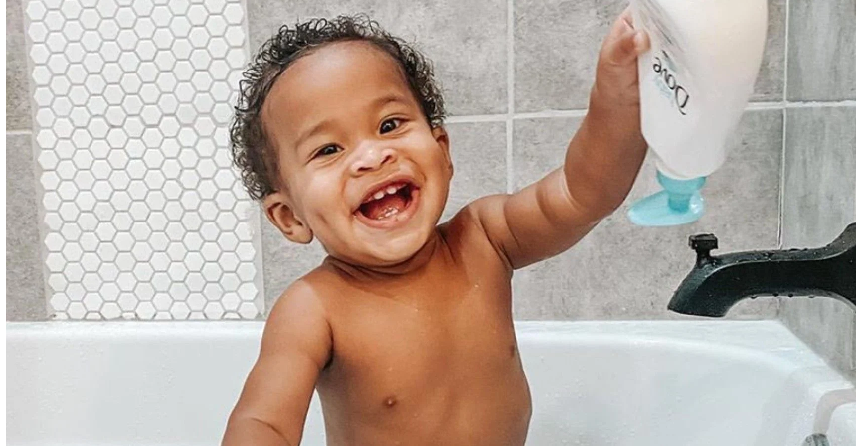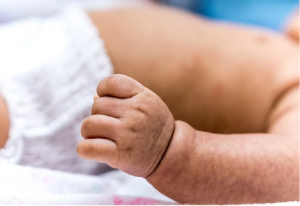
01 Jun How to care for baby’s skin
Is there anything more perfect than your baby’s skin? You can’t resist touching and caressing her. Your baby loves it as much as you do.
Protecting a baby’s delicate skin is an important responsibility for parents. Here we tell you what you need to know and do.
The Softness
Although your baby’s skin is one of the softest things you will feel, it is also strong and resistant. The skin is the largest organ of the body: it is a group of cells connected to form a thin but firm barrier. The skin is constantly renewed throughout life, and the renewal process begins even before birth.
However, the skin of many newborns is not perfect at first. You shouldn’t be alarmed if you notice skin scaling or redness in the first few days after delivery, especially around the wrists, knees, and feet. That’s normal.
After the first few weeks, your baby’s skin will soften.
Humectants

To keep your baby’s skin healthy, you need to retain its natural softness and firmness. And even if your baby’s skin isn’t flaking, it can do her good to put on moisturizers.
You can get products without fragrance and with ingredients like mineral oil or petroleum jelly. If you need advice, talk to your doctor.
Whichever product you choose, keep the same brand and type so your baby’s skin doesn’t have to readjust to the different combinations of ingredients in different products.
Children’s Sun Protection
Babies of any age should avoid direct sun exposure. A baby can get sunburned with just ten or fifteen minutes of exposure, even on cloudy days.
- The first thing you can do to minimize exposure is to take care of your clothing. UPF 50 sun protection clothing is the best.
- On warm days, dress your baby in light cotton clothing that covers her legs and arms.
- Make sure he wears a wide-brimmed hat whenever he goes out.
- Try to avoid going out when the sun’s rays are most damaging, between ten in the morning and three in the afternoon.
- When you are outside, try to keep your baby in the shade.
The American Academy of Pediatrics says there’s no evidence that using small amounts of sunscreen on young babies poses big risks. It’s best not to rely on sunscreen as a replacement for the protection you get from clothing or to avoid sun exposure altogether. Use it to cover your face, hands, and feet exposed to the sun.
Nails: Protect the Skin From Scratches
Your baby’s fingernails are very thin and sharp, and it’s amazing how fast they grow! You may need to trim them up twice a week.
This is important, as newborns can scratch their faces with their own fingernails.
nail care tips
- Use a soft nail file, nail clippers, or baby nail scissors to trim them. It may be easier for you to do this when your baby is asleep.
- To avoid damaging the skin on your fingertip when cutting your nail, hold your finger firmly and push the pad back (away from the nail tip) as you cut.
- Toenails grow much slower and are generally very soft. You don’t need to keep them as short as your fingernails: trimming them once or twice a month is enough.
- Although it seems that the toenails are ingrown, this rarely happens to babies.
- Call your doctor if the skin around your toenails is red, swollen, or hard.
Penis Skin Care
Circumcision:
Caring for your newborn’s circumcision isn’t difficult if you know what to do. The first week after the procedure, the penis may be red, and a yellow crust may appear.
Tips for after circumcision
- Keep the area clean using neutral soap and water after each diaper change.
- Coat the head of the penis with petroleum jelly to protect it, and carefully wrap it in a gauze bandage.
- Your doctor will tell you how long you should leave the gauze on. If at any time you suspect that it has been infected, notify your doctor.
If your son is not circumcised
Wash his penis with mild soap and water, just like the rest of the diaper area. Don’t try to pull the foreskin back, as it will gradually retract on its own, usually by three years.
Tips For Washing Baby Clothes
Detergent:
Your baby’s skin can be sensitive to chemicals in new clothes, and to soap and detergent left on clothes after washing.
- Wash all new clothes and sheets before the baby uses them.
- During the first months, wash the baby’s clothes separately from the rest of the family.
- Use a mild detergent and a longer rinse cycle or 2 rinse cycles.
A Baby’s skin is delicate and needs special attention, these tips will help you make sure you keep it protected.
You may also be interested in 5 Tips To Take Care Of Children’s Skin In Summer



Sorry, the comment form is closed at this time.